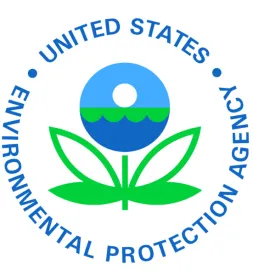On November 27, 2020, the US Environmental Protection Agency (“EPA”) published notice that the Texas Commission on Environmental Quality (“TCEQ”) has applied to the US EPA for National Pollutant Discharge Elimination System (“NPDES”) program authorization for discharges of produced water, hydrostatic test water and gas plant effluent. [1] TCEQ’s application (“Application”) was filed in response to a bill passed during the last Texas legislative session that required TCEQ to submit to EPA no later than September 1, 2021, a request for NPDES permitting authority for discharges of produced water, hydrostatic test water and gas plant effluent associated with oil and gas activities currently under the jurisdiction of the Railroad Commission of Texas (RRC). [2] Under this legislation, state authority to regulate these discharges will transfer from the RRC to TCEQ upon EPA’s grant of NPDES permitting authority to TCEQ. Should EPA grant NPDES permitting authority to TCEQ for these discharges, a prospective permittee would generally only need to obtain a single TCEQ authorization (rather than an authorization from both the RRC and EPA). [3]
If the Application, which TCEQ submitted about a year ahead of schedule, is approved, TCEQ will implement the NPDES permitting, compliance monitoring and enforcement program for oil and gas discharges in Texas. TCEQ’s authority will apply on land within Texas and extend 3 miles offshore in the Gulf of Mexico. EPA will retain jurisdiction for discharges more than 3 statute miles offshore in the Gulf of Mexico as well as releases of hydrocarbons to waters of the US under the Oil Pollution Act. In addition, TCEQ’s authority will not apply to discharges located on tribal lands for which EPA will also retain jurisdiction. [4] Specific provisions relating to the timing of transfer of oil and gas permitting, compliance monitoring and enforcement authority from EPA to TCEQ are set forth in revisions to the prior Memorandum of Agreement entered into by EPA Region 6 and TCEQ. [5]
EPA will hold a virtual meeting (including an informal question and answer session) followed by a virtual hearing on January 5, 2021 to provide interested parties an opportunity to provide comments on the Application. Written comments may also be submitted. The end of the comment period is January 11, 2021. EPA notes that it must approve or disapprove the program, taking into consideration all comments received, within 90 days of EPA’s receipt of the complete Application (or January 11, 2021) [6] unless EPA and the state extend the review period by mutual agreement. Additional information related to the procedures for submittal of comments and public participation are available in the Public Notice. Interested parties in the oil and gas industry may wish to consider availing themselves of these public participation opportunities.
[1] See Public Notice of State of Texas’ Submittal to EPA of Request for Partial National Pollutant Discharge Elimination System (NPDES) Program Authorization for Oil and Gas Discharges (“Public Notice”) available here.
[2] See House Bill 2771(86th Tex. Leg. R.S., 2019). Since 1998, TCEQ has implemented an approved partial NPDES permitting program for non-oil and gas wastewaters under its jurisdiction. See here.
[3] Notably, grant of NPDES permitting program authority to TCEQ does not effectuate any changes in current effluent limitation guidelines that, to date, have significantly limited the discharge of oil and gas wastewaters.
[4] See Public Notice available here.
[5] See Addendum to the Memorandum of Agreement between the Texas Commission on Environmental Quality and the US Environmental Protection Agency, Region 6 Concerning the National Pollutant Discharge Elimination System available here. Generally, upon authorization, jurisdiction for EPA-issued oil and gas permits and primary enforcement authority for oil and gas discharges within the state of Texas will be transferred to TCEQ subject to certain exceptions (e.g., permits for which appeals are pending or enforcement actions that are ongoing).
[6] The Public Notice indicates that the Application was received by EPA on October 12, 2020.




 />i
/>i

